We’re pleased to bring you an interview with Sarah Gailey, one of this year’s Sirens Guests of Honor. We hope these conversations will be a prelude to the ones our attendees will be having in Denver this October. Today, Sirens co-chair Amy Tenbrink speaks with Sarah Gailey.
AMY TENBRINK: The home page of your website says, big and bold and just after your name, “Writer. Reader. Enthusiast.” I first encountered your work with your novella, River of Teeth, which I adore for the unrelentingly fuck-you subversion among all the gleefully ahistorical hippos, but almost immediately thereafter, I ran across your essays, which I adore for their unflinching and hilarious insight. Would you tell us about these three parts of you—writer, reader, and enthusiast—and why you think each deserves a place of proclamation on the home page of your website?
SARAH GAILEY: I think that those three words summarize pretty much all of what I do and who I am! I read compulsively, because stories are the fuel my brain feeds on. They’re nourishing and I’m lucky enough to be reading during a golden era of storytelling. Reading isn’t just a thing I do; being a reader is a part of my identity.
I write for a living, which is an enormous blessing. I am so fortunate to be able to support myself by doing the thing I love most. Of course, that means that I write way too much—when you do what you love, you never stop working a day in your life. I’m still learning how to set boundaries for myself, to take time away from work and nurture myself in ways that have nothing to do with being an author.
Which is why it’s crucial that I’m also an enthusiast. I love to be excited by the world around me, to learn new things, and share the thrill of discovery with others. I find cynicism and incuriosity to be a form of cowardice — people let themselves be governed by a fear of looking foolish, or a fear of having to apologize for things they believed in the past, or a fear of the pain that comes with growth. I’m not interested in letting that kind of fear shape my life, so instead I run fast as I can in the opposite direction, with great enthusiasm.
AMY: In Upright Women Wanted, you use the phrase “gallows courage,” a phrase that’s not out of place in a work that opens with a hanging. But Upright Women Wanted is dedicated “[t]o everyone who thought they’d never live this long,” which is a reference to your 2018 essay “Between the Coats: A Sensitivity Read Changed My Life” about your claiming queerness as part of your identity and how, for a number of reasons relating to your queerness, you didn’t think you’d live this long. You’ve also said that your short story, “Bread and Milk and Salt”, about cycles of abuse, is your most personal short story. I think your work—your honesty, your rawness, your admitted errors and apologies and desire to grow—takes gallows courage. Would you share some of your thoughts about putting so much of your heart on a page?
SARAH: For a big part of my life, the circumstances I was in required me to keep too many secrets. That secrecy is a hallmark of abusive environments and relationships. You internalize this idea that it’s wrong to tell anyone what’s happening inside your home, what’s happening to your body, what’s happening inside your heart. Saying “I’m hurting” or “I’m scared” or “I’m sad” feels dangerous and forbidden.
When I started trying to build a life for myself that didn’t include space for abusive dynamics, one of the things I found to be most healing was transparency. I learned how to invite people into my space, physically and emotionally, in ways that are safe for everyone involved. It was really scary, and I did a terrible job for a while—it’s a very steep learning curve that I’m still climbing—but at this point, secrecy isn’t a part of who I am or who I want to be.
I draw a very firm distinction between “secrecy” and “privacy,” which is crucial when you write about yourself and your life in the ways I do. There are a lot of things about me that I don’t share with the world. But the things I do share, I share because I think there can be healing in that sharing, for me and for readers. This last birthday, I finally stopped being private about my age; I publicly discussed the dynamics that made me hide it for so long, because I know that there are readers of mine who have struggled with the same issues. If I can safely reveal parts of myself and, in so doing, help a reader to feel more seen and safer in the world, then I think my work can have real meaning.
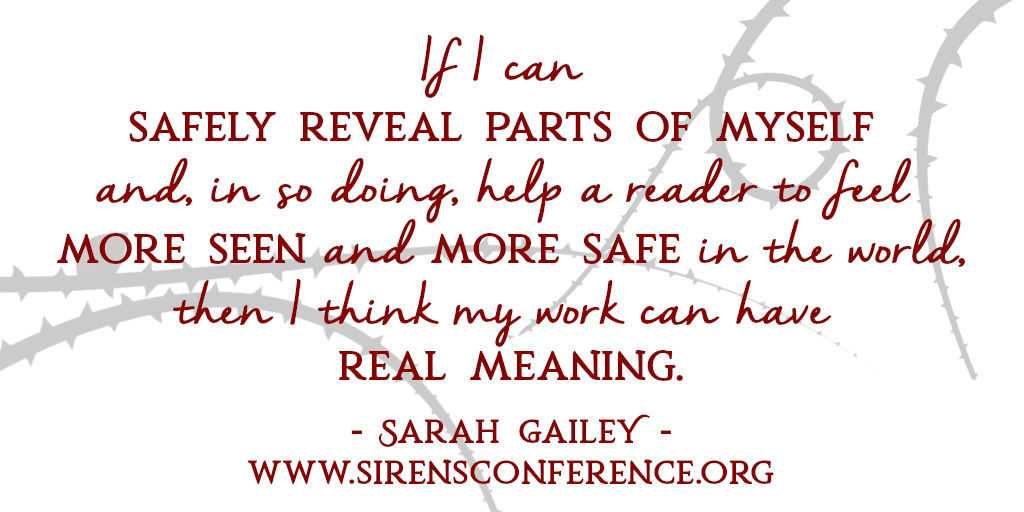
AMY: In 2019, after Magic for Liars, your noir magical boarding school novel, was released, you wrote an essay, “What Makes a Story Queer?,” in which you say, “Were I to end Magic for Liars on an optimistic note, I would allow Ivy’s story to continue mirroring mine: Ivy Gamble would find a community of people who were, in fact, just like her…. Through the love and support of that community, Ivy would come to understand herself. She would develop a sense of security. She would develop a sense of self. She would develop a sense of pride.” In When We Were Magic, your new young-adult novel, you give Alexis, struggling with her identity and her friends and her failures and fears and hopes, just that optimistic ending. In many ways, when I read the three works you’ve published in the last year—Magic for Liars to Upright Women Wanted to When We Were Magic—I can follow a single thread from struggle to defiance to joy. Would you please talk about what you hope readers take away from your books?
SARAH: That’s an incredibly astute observation! I put a lot of myself onto the page, intentionally and unintentionally, and I love that the journey I’ve taken in my own life — from struggle to defiance to joy — is visible on the page.
In every book I write, I want readers to take away something different. In Magic for Liars, I wanted readers to take away an understanding of how everyone is involved in their own story and their own struggle, and those narratives aren’t always visible to the people who are living inside of them. Ivy Gamble is lying to herself, and she’s lying to herself about why she’s doing it, and she’s lying to the reader about how honest she’s capable of being. She’s not doing that on purpose, to be sneaky or malicious—she’s doing the best she can, and she’s still failing, because sometimes that’s what we do.
In Upright Women Wanted, I wanted readers to take away the idea that tragedy isn’t inevitable, and it doesn’t have to be the end of a story. For so many people, especially queer people, hardship feels defining, and tragedy feels final. But Esther’s story begins with tragedy, and from there, she finds triumph and joy alongside her grief. I wanted readers to feel in their bones that they can have both.
When We Were Magic is the story of what life can be when you lean into that joy. It’s a story of supportive community, emotionally healthy and loving friendships, good boundaries and tenderness even in the midst of conflict and trauma. I wrote it for the teen I once was, who needed to hear that it’s okay to let your friends love you even when you’re a mess, and that’s the message I hope readers—especially young readers—take away from those pages.
AMY: In your work, both fiction and nonfiction, you dive deep on gender issues, particularly those affecting people who aren’t cisgender men. As a few examples, you did a boatload of research into abortion and abortion ethics in order to write Magic for Liars; your short story “STET” delves deeply into a mother’s grief and the societal silencing thereof; your nonfiction is rife with intersectional feminist issues, such as “Fear of the Female Voice” and “A Woman, Explaining Things.” How do you do your research? What do you read? Who do you talk to?
SARAH: I’m so fortunate to be part of a community with a ton of brilliant people in it! Often, when I need help learning about an issue—like, for instance, abortion and abortion ethics—I start with general reference material from reputable sources. I check out Wikipedia and look at the citations on articles, and there’s often great information available from trustworthy organizations like Planned Parenthood. Once I feel like I have a good grasp on baseline information, I reach out to closed sections of my community, like private slack channels or broad group chats. That’s how I add color and texture to the reference material. I get most of my information from one-on-one conversations. I find that the best way to learn is to talk to people who are passionate about their area of expertise, both because then you get the really good, reliable intel, and because there are nuances to information that reference material can rarely supply.
AMY: In 2021, the Sirens theme is villains, so let’s talk about gender, sexuality, and villainy. Society, of course, frequently demands that we cast women and queer folk as villains, often simply for defying the limitations imposed by the heteropatriarchy. And often, given that your characters, across genders and sexualities, walk a fine line between antihero and villain—from the River of Teeth gang to Alexis’s killing a boy in When We Were Magic—I imagine you have something to say on this particular topic. Talk to me about villains!
SARAH: I have always loved villains. I don’t think this is rare—villains are often the more complicated characters in children’s media, the characters whose motivations feel grounded in emotions that children can relate to. Heroes in children’s media often exhibit more grown-up behavior than villains do—they don’t tend to throw tantrums or get petty and pouty—and so they can feel a little out-of-reach. Villains are also visually fascinating in a way heroes often aren’t (picture Jafar vs. Aladdin in Disney’s Aladdin—only one of them has facial features you can grab onto). And of course, as a tiny queer baby, I saw the queer-coding in those villains and identified with it in ways I didn’t really understand.
As an adult, I find villains fascinating for a different reason. I think the best villains, the most fascinating ones, are the ones who are truly trying to Do Right. Few people act in ways that they believe to be evil or selfish, but doing bad things is a part of the human condition that we’ve never been able to escape. In my writing, I want to explore the things we do to hurt each other, and why they feel so necessary and inescapable.
The one exception to this is in Upright Women Wanted, where the villain is a fascist police-state. I think we’ve had more than enough media that aims to humanize those particular types of villains, and so in writing that book, I let them be a little more one-dimensional than I usually would. The villain in Upright Women Wanted is a villain because he wants to hurt you and the people you love, and sometimes, that’s enough.
AMY: Sirens is about discussing and deconstructing both gender and fantasy literature. Would you please tell us about a woman or nonbinary person—a family member, a friend, a reader, an author, an editor, a character, anyone—who has changed your life?
SARAH: My friend Elisabeth. I met her during the year I lived in Portland, and our friendship has been completely transformational for me. Elisabeth has taught me how to take up space, how to expect support and love from my friends, and how to demand that my emotions be acknowledged and attended to. For so much of my life, I accepted the idea that my feelings had to be reasonable, logical, and explainable in order to deserve care. I will never forget the day that Elisabeth told me “it’s okay to be emotional sometimes—it’s an expression of what you’re feeling, and the people who love you should make space for that.” All of my relationships have flourished so much with that perspective. I started asking for space for my own feelings—and refusing to have my feelings shut down by men saying “you’re just being dramatic” or “you need to calm down.” The result has been that my friends, family, and loved ones have started asking for space for their needs and feelings, and we all have so many more opportunities to see, acknowledge, and care for each other. It’s been stunning, and I owe it all to Elisabeth.
Hugo Award winner and bestselling author Sarah Gailey is an internationally published writer of fiction and nonfiction. Their nonfiction has been published by Mashable and the Boston Globe, and they won a Hugo award for Best Fan Writer. Their most recent fiction credits include Vice and The Atlantic. Their debut novella, River of Teeth, was a 2018 Hugo and Nebula award finalist. Their bestselling adult novel debut, Magic for Liars, was published in 2019; their latest novella, Upright Women Wanted, was published in February 2020. Their young adult novel debut, When We Were Magic, came out in March 2020.
For more information about Sarah, please visit their website or their Twitter.






























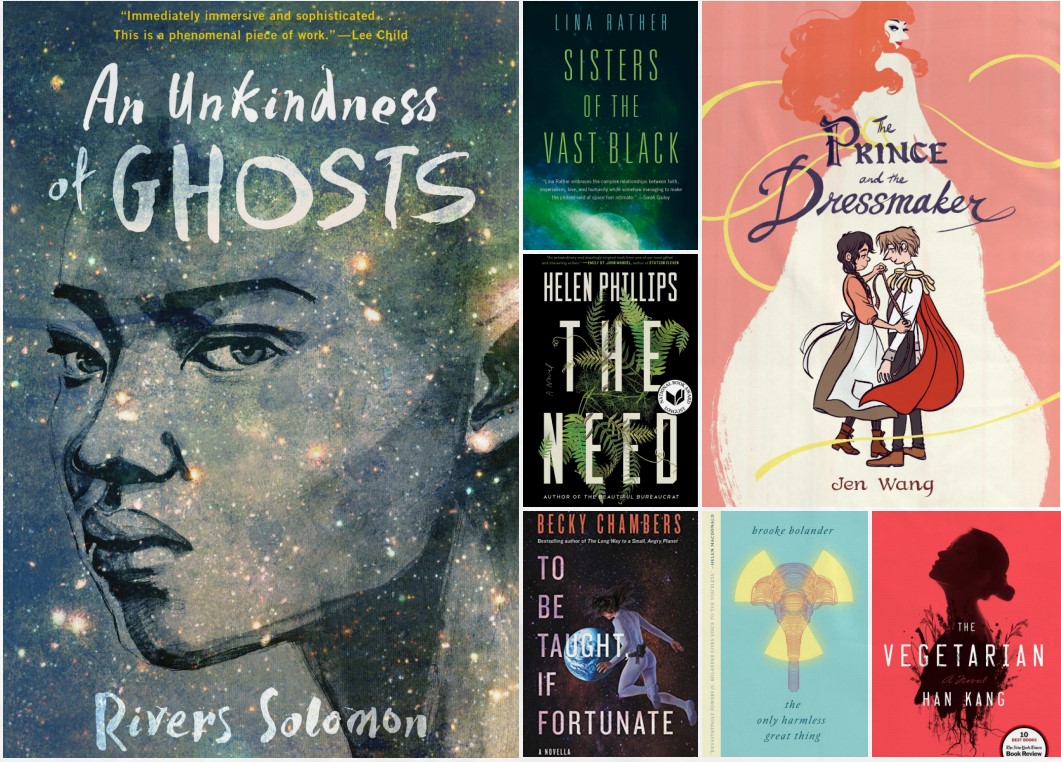
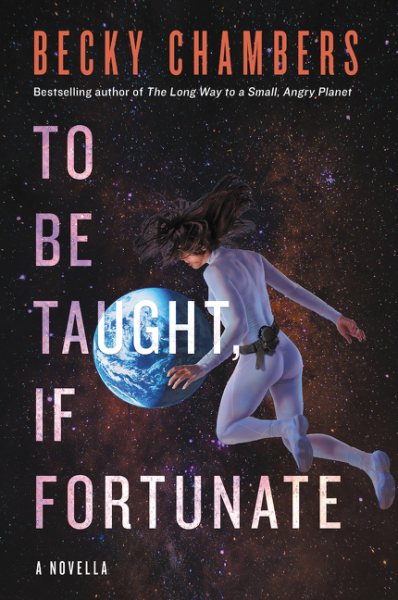
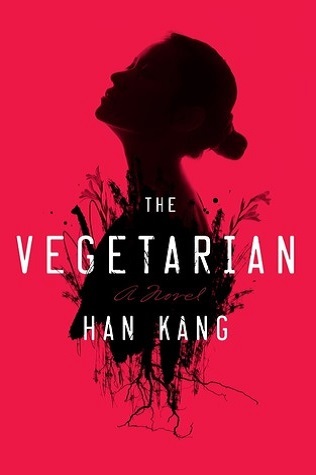
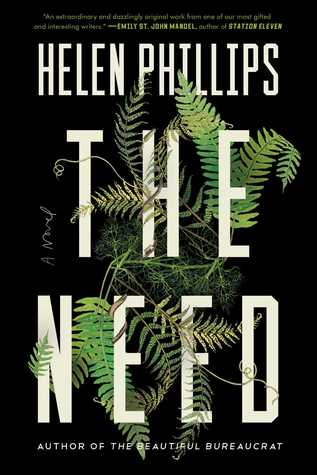
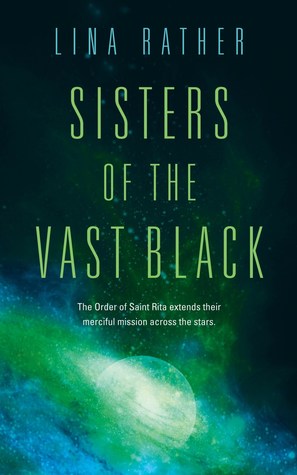
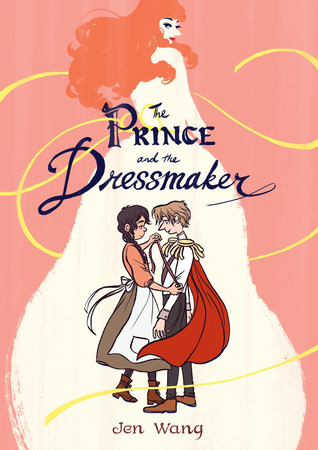
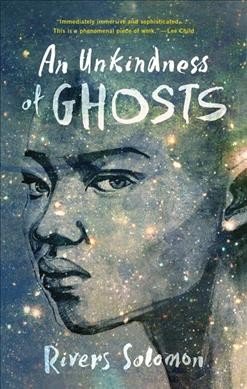
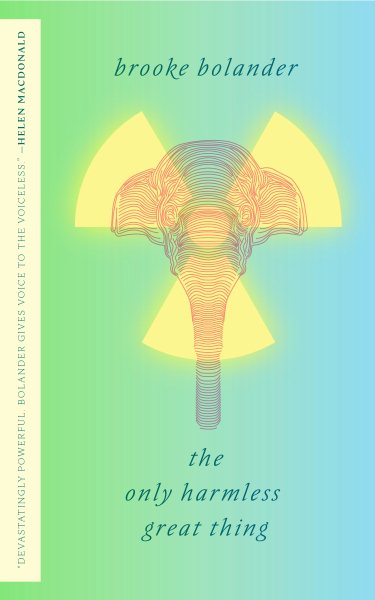

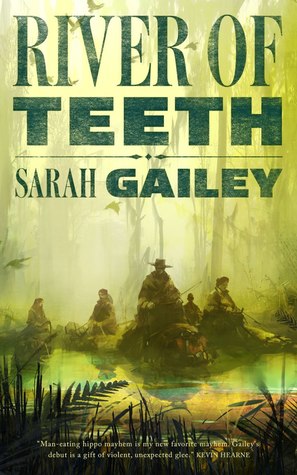
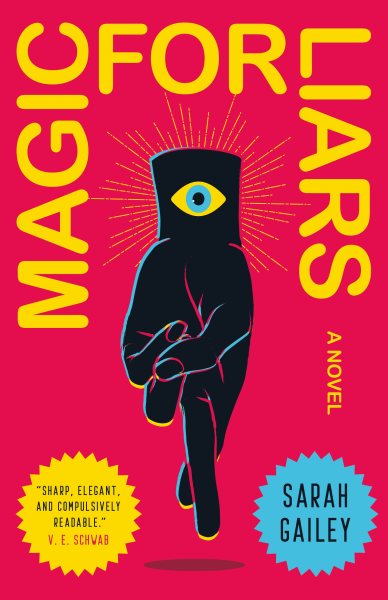
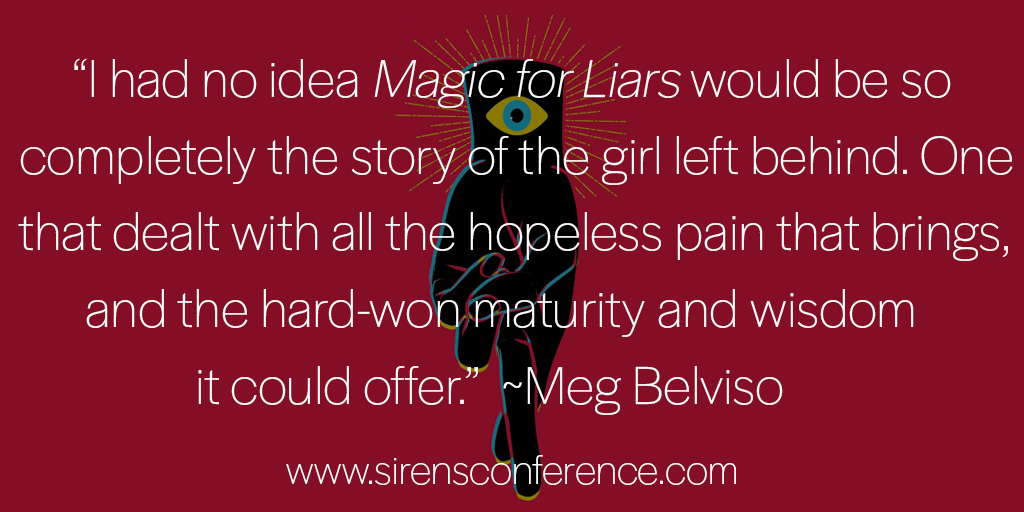
 Meg Belviso holds a BA in English from Smith College and an MFA from Columbia University. As a writer and editor, she chronicles angel encounters as staff editor of Angels on Earth magazine and has written for various fiction and nonfiction properties, including several biographies in Penguin’s Who Was…? series.
Meg Belviso holds a BA in English from Smith College and an MFA from Columbia University. As a writer and editor, she chronicles angel encounters as staff editor of Angels on Earth magazine and has written for various fiction and nonfiction properties, including several biographies in Penguin’s Who Was…? series.










































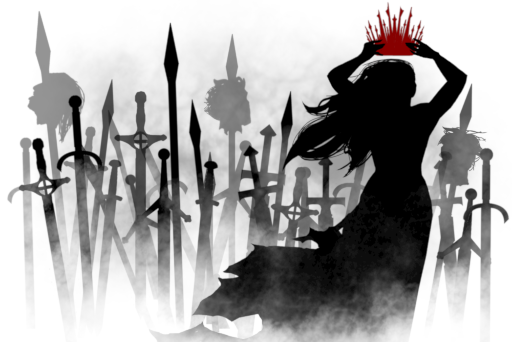

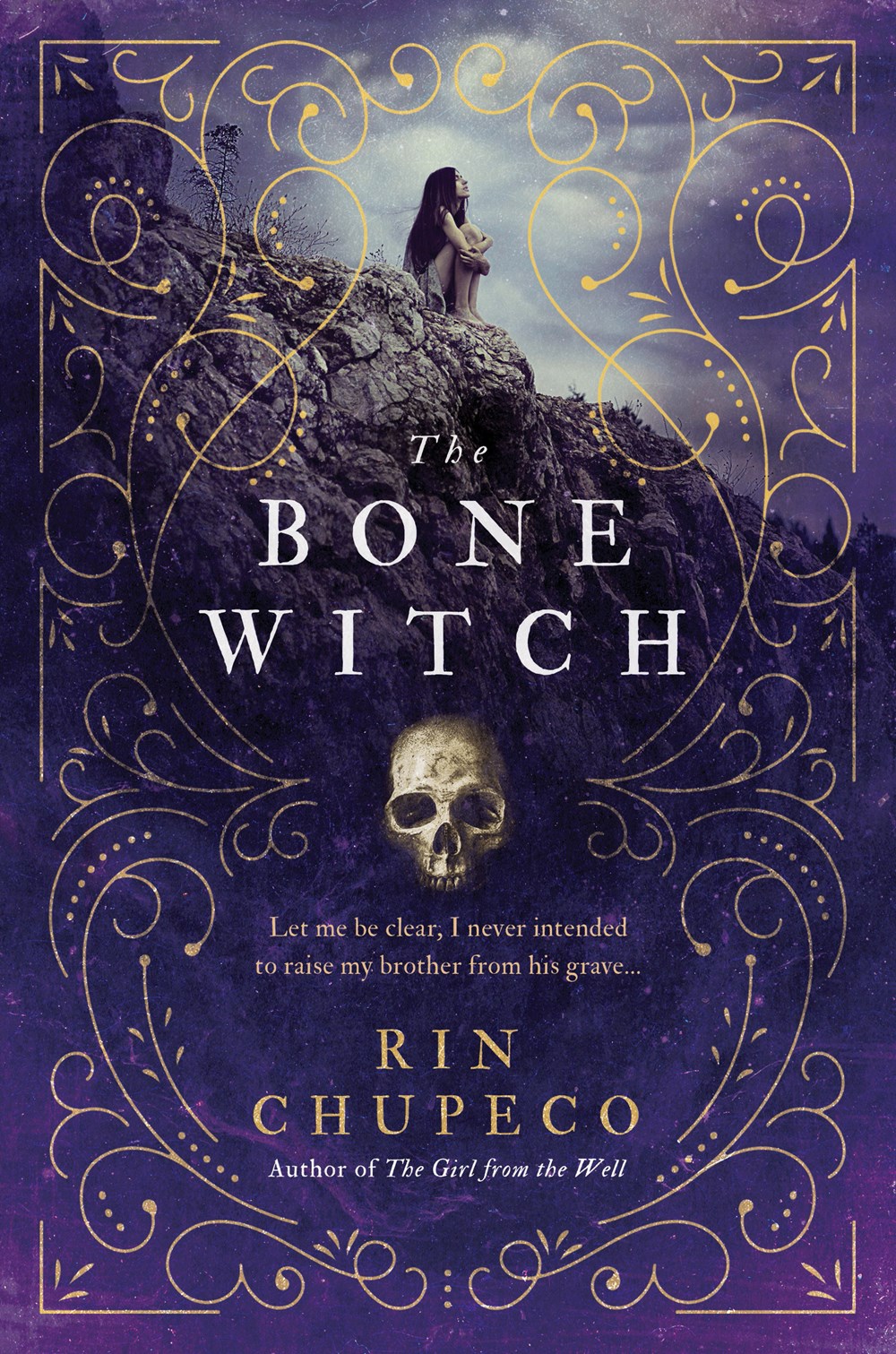
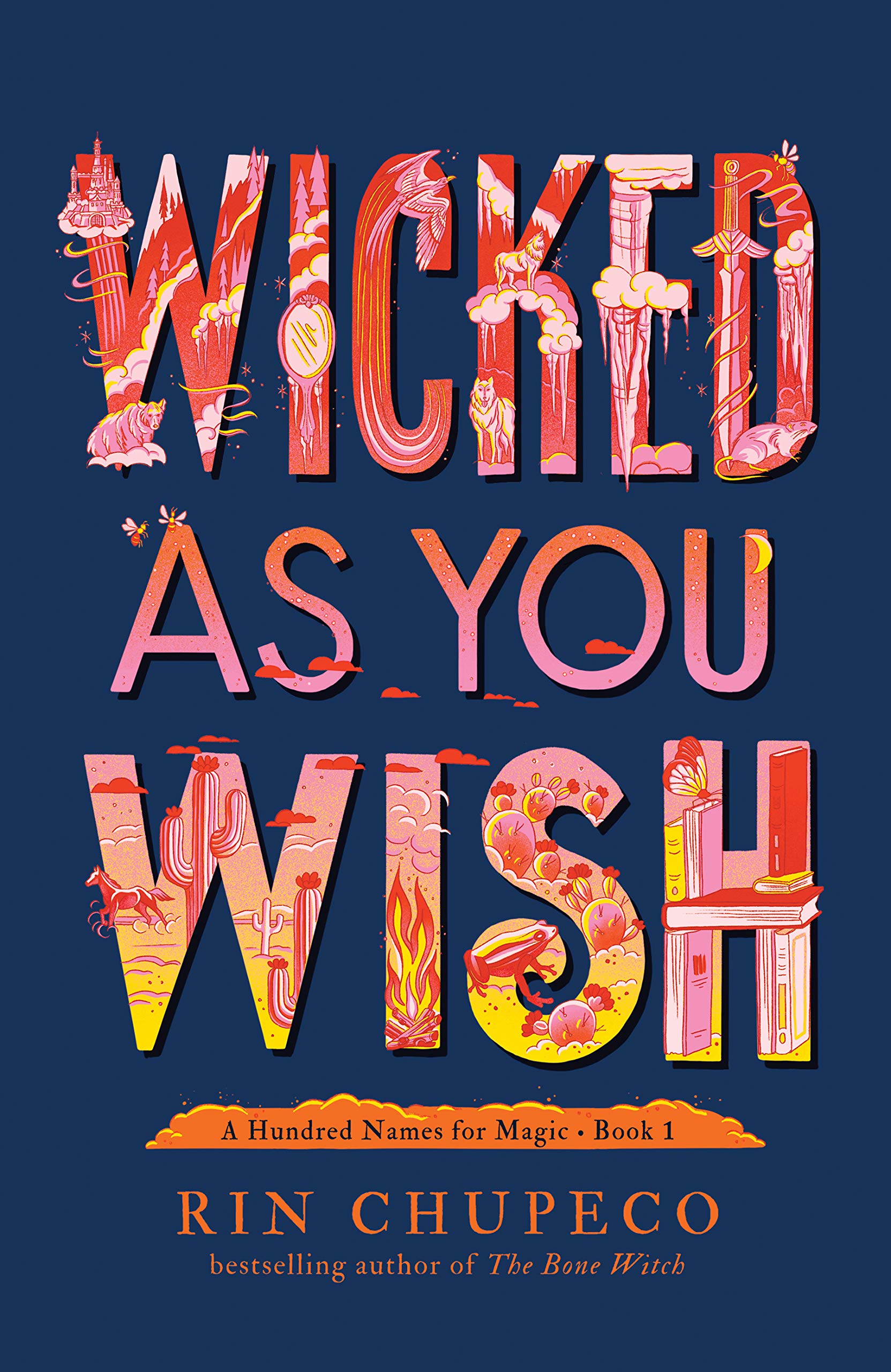

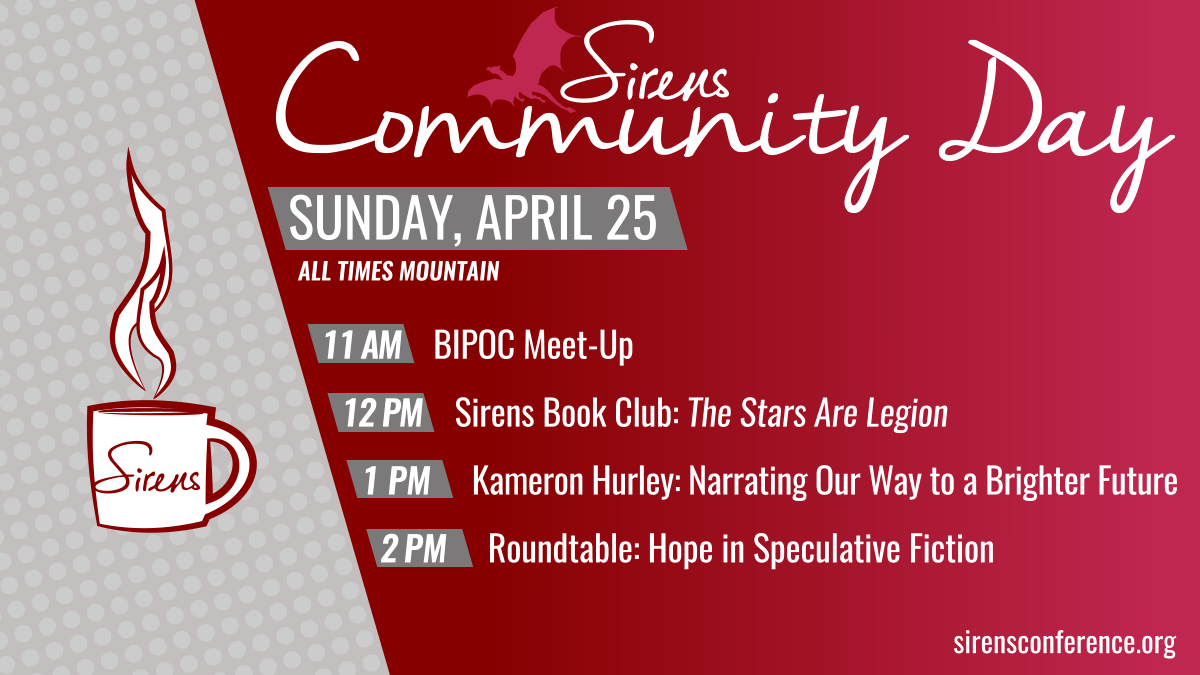
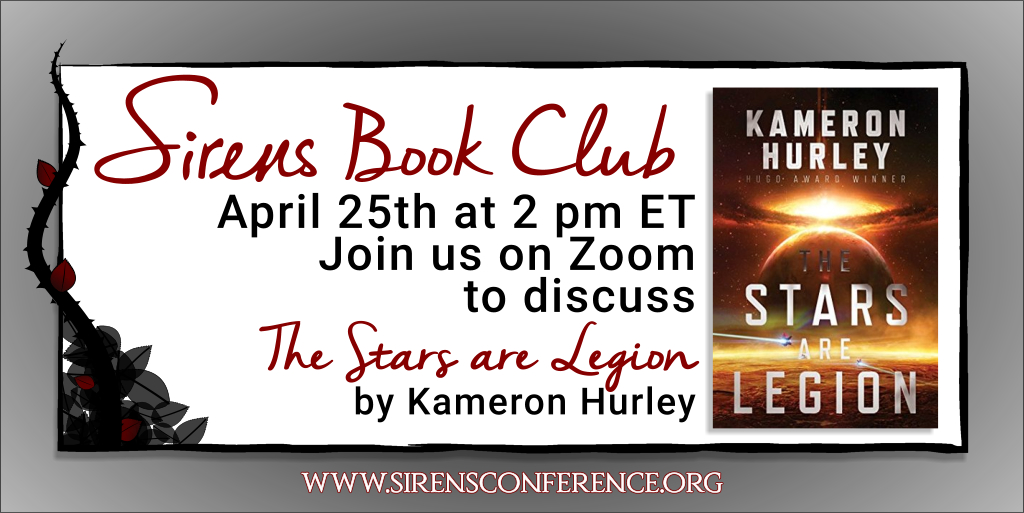




Connect with the Sirens community
Sign up for the Sirens newsletter